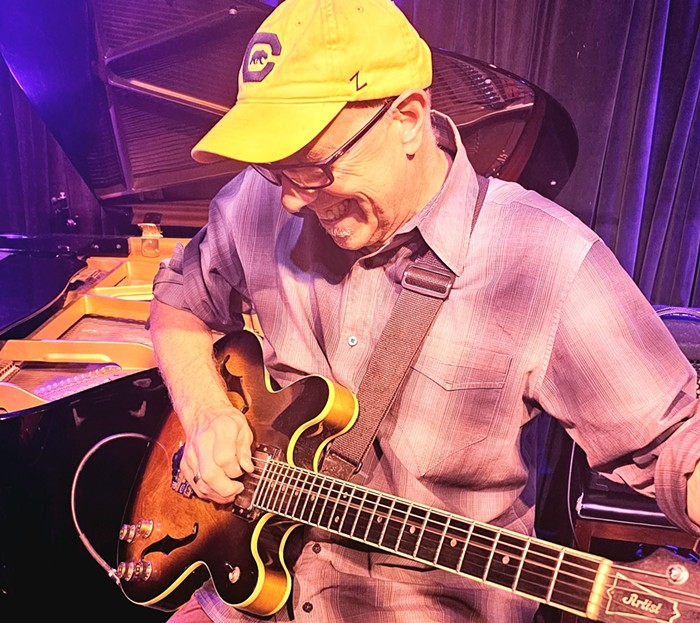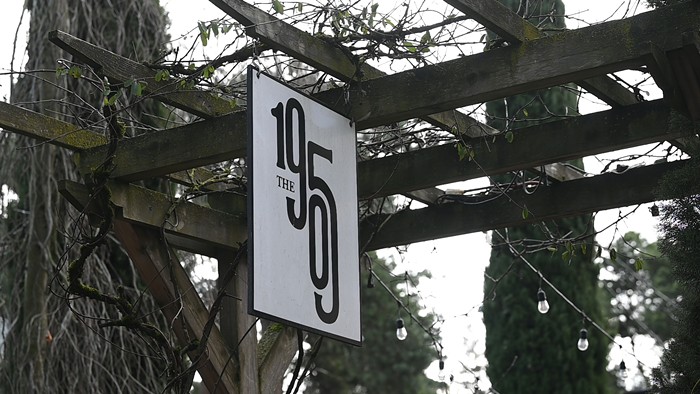It's the classic tale told in seemingly endless biographies, rock 'n' roll screenplays, and just about every episode of Behind the Music: Musician is confronted by adversity, overcomes said adversity, makes their finest recording, and finally tastes the sweet and glorious world of fame as the credits roll.
For the Helio Sequence, adversity sprang from within the throat of singer/guitarist Brandon Summers, who, after a 2004 tour, lost his voice. Seemingly for good. "It was at the end of '04, we were doing two solid months of touring, and I had already pretty much completely lost my voice," says Summers. "I wasn't really able to talk during the day, and was pretty miserable, my voice was completely gone. I was worried that I had damaged it, so I decided I was just going to wait around for a month assuming I'd get it back. I wasn't able to, and I finally went to the doctor."
Lucky for Summers the result wasn't anything permanent, just a blunt reminder that he needed to take care of both himself and his band—which he formed with drummer and childhood friend Benjamin Weikel in 1999. "I was terrified," he says. "If I'm not able to sing, what am I going to do? What are we going to do? Benjamin and I have been doing this since we were kids and it was a really unsure time. Getting back to singing was a really slow, shaky process."
In retrospect, the health scare proved to be a mixed blessing for Summers and the band. The years leading up to the vocal loss were stressful times for the duo, who were overbooked with nonstop touring, recording demands, and the double-duty drumming of Weikel, who was filling in behind the kit for Modest Mouse as well. The Helio Sequence were exhausted. So for album number four, they scrapped what was expected of them—the mountains of atmospheric guitar noise, the mid-tempo vocals, the thumping drums—and, starting with the songwriting, the duo retooled the way they write music.
"We wanted to do something with a little more depth. We were more interested in 'songs' rather than jamming on something and creating music out of that," Summers says. "We wanted to be really conscious of structure and function, and that came down to a bigger focus on lyrics. In the past, vocals would come last."
That changed with their 2008 album, Keep Your Eyes Ahead. "I found myself setting vocals around what was going on musically," Summers adds. "'This song kind of has this tone, so this is what the lyrics should be.' There was a lot more synthesis to this record, and everything came together at the same time." The change in songwriting direction is clearly evident on Keep Your Eyes Ahead, which resonates as a cohesive, and massive, rock record that is painstakingly polished with a loving sheen that radiates with radio-friendly hooks, but refuses to dumb down the finished product in all its shimmering glory.
The tectonic shift in direction allows the band to branch out, especially on the Blood on the Tracks-esque woeful ballad of "Shed Your Love." A straightforward song they would never have released in their reckless early days, Summers describes it as, "One of the songs that just had to be written, but I didn't think it would be a Helio Sequence song. I recorded it as I was getting my voice back, in the summer of '05, and it's just acoustic guitar and voice."
And while the lyrics tell the all-too-familiar tale of missed connections ("Home again to find that you were gone/on a subway train before the dawn/Said that you couldn't stay and wait for me/Shed your love, shed your love"), upon first listen it's the most noticeable track on Keep Your Eyes Ahead—it's just so quiet—and the more time you spend with the record, it's the one song that you keep coming back to. Maybe it's the starkness, the soft wave of noises that coat the delicate strumming, or the frail rasp of Summers' voice, but regardless, it's a song that feels impossible to ignore.
So if everything we've learned from Behind the Music is correct, this is the part of the story where the Helio Sequence bask in the fruits of their labor. The past few weeks have found the band wrapping production on a fantastic video for their first single (the album's title track), performing on Jimmy Kimmel Live!, and, for the first time in their career, getting significant radio airplay. Adversity has been triumphed over, so it's time to roll those credits now.


















